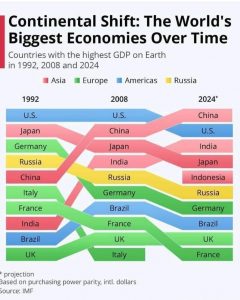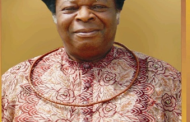Is it the ‘Mandate of Heaven’ or the Chinese Communist Party at work or do the two have the same meaning? This should not be such a stupid question in that, up to 2012 and even in serious academic outings, the joke was that there were more communists in Italy than in Beijing where “modern Communist bureaucrats are too busy collecting capital to read Karl Marx’s Das Kapital”.
And then, dramatically, the Chinese president is up there declaring how great an honour it is to belong to the Chinese Communist Party for bidding farewell to extreme poverty in China by lifting 850 million people out of destitution in what he is also calling an “unprecedented accomplishment” unmatched by any nation in modern history.

President Xi Jinping of China
It was all happening February 25th, 2021 when the president declared at a ceremony televised Live that 98.99 million people had been freed from abject poverty after an eight-year campaign and residents of more than 800 counties, with average income under 4,000 yuan (US$619) a year, had been removed from the official poverty list.
He could not forget saying that “There is no other country that could achieve such remarkable poverty alleviation progress within such a short time”. Not when he is adding that “Shaking off poverty is not the finish line but the starting point of a new life and new endeavour”.
According to the South China Morning Post (SCMP) which carried the most detailed report of the breakthrough so far, Mr Jinping is also saying that “Eradicating extreme poverty is yet another remarkable miracle of mankind worthy of historic remembrance. Interestingly, the SCMP added that, apart from the official narrative, China’s success on the poverty-elimination front has also been recognised globally, referencing how the World Bank had acknowledged back in 2017 China’s “unmatched record” that it put as accounting for more than 70 per cent of global success in eradicating extreme poverty since the 1980s.
In other not to fail to connect the event to its politics, President Xi presented awards and certificates to grass-roots party secretaries, academics, school principals and others for their key contributions to the nation’s cause.
According to the SCMP, China’s poverty line is set at about US$2.30 a day – slightly above the World Bank’s lowest threshold of US$1.90 but below what is recommended for measuring higher-income countries.
This approach to problem solving has seen the country investing nearly 1.6 trillion yuan in poverty alleviation over the past eight years, according to the official Xinhua news agency.
It is a statement which is bound to reverberate across the world although, by the assessment of a well located African political economist recently, Americans and Europeans will remain wealthier on average than Chinese, Indians and Brazilians for a very long time.
 His argument is that the situation hasn’t changed drastically in GDP per capita terms. Population and productivity determine GDP growth, he says and if current population trends continue, Africa will account for 40% of the global population by 2100 and 14 of the 26 countries that will have populations of more than 100 million will be in Africa. Some countries like Nigeria, Egypt, South Africa and Ethiopia might join the group with reasonable growth rates. But, African economies are very small, the largest being Nigeria’s with about $450 billion.
His argument is that the situation hasn’t changed drastically in GDP per capita terms. Population and productivity determine GDP growth, he says and if current population trends continue, Africa will account for 40% of the global population by 2100 and 14 of the 26 countries that will have populations of more than 100 million will be in Africa. Some countries like Nigeria, Egypt, South Africa and Ethiopia might join the group with reasonable growth rates. But, African economies are very small, the largest being Nigeria’s with about $450 billion.
China’s farewell to extreme poverty will be read with interest across the world. Irrespective of space and time, it will be connected to questions of party system, the role the state should play in development politics and the question of leadership recruitment. Of course, racial sense of self would also come in and, above all, the political education of the leader/elite leadership. But strategy or statecraft would equally rear its head especially when this development is being interpreted in Africa, particularly Sub-Saharan Africa where poverty is most severe and where the Chinese experience might be most instructive.
The Chinese were the ones who made the powerful statement that it didn’t matter whether the cat is black or white. What is important is if it could catch mice. And so what is called the Chinese model today is actually a hybrid of models – from the United States, Europe and a lot from surrounding pioneers of industrial modernity in Asia – Japan, Singapore, South Korea and even Taiwan. That is how China, as predicted by Martin Jacques is, indeed, ruling the world.
With the theme of development seized from the African leaders by the foreign patrons, with most of them ruling without any informed political parties and in the context of the turmoil across the continent, being able to master hybridity seems out of the question.
Still, it is the sort of announcement any African country would love to make or should wish to make. Unfortunately, most African countries are either slugging it out between the component ethnic groups or lost in deadly struggle for power among the elite to bother about eradicating poverty in any serious sense of it. That is when it is not the colonial factor in the historical evolution of the typical African state.




























